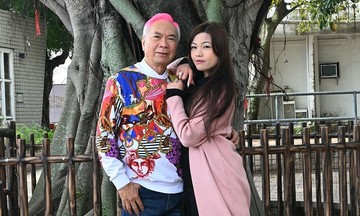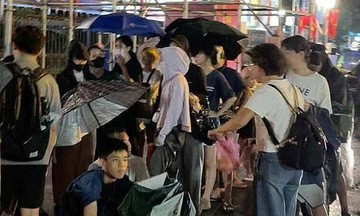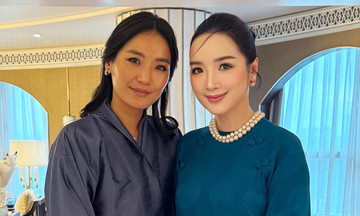A line from the 1997 TVB adaptation of "Demi-Gods and Semi-Devils" has gone viral on Chinese social media after the Shaolin Temple's abbot, Shi Yongxin, was accused of crimes. According to Guancha, the topic "鳩摩智, Shaolin Temple" garnered hundreds of millions of views and tens of thousands of comments on Weibo after the temple's management confirmed the allegations against Shi Yongxin on 27/7. Multiple agencies in China are investigating him for alleged embezzlement, serious violations of Buddhist precepts, and having illicit relationships with multiple women, resulting in children born out of wedlock.
Shi Yongxin, whose secular name is Liu Yingcheng, was born in 1965 in Fuyang City, Anhui Province. According to the Shaolin Temple's website, he arrived at the temple in 1981 and became a disciple of the 29th abbot, Shi Xingzheng. After Shi Xingzheng's death in 1987, Shi Yongxin inherited his robes and became head of the Shaolin Temple Management Committee, overseeing all temple affairs.
A clip of Jiu Mozhi confronting the Shaolin Temple in the 1997 "Demi-Gods and Semi-Devils". Video: TVB
The scandal has shocked the Chinese public, with many sharing a clip of the character Jiu Mozhi at the Shaolin Temple from the TVB series. In the scene, Jiu Mozhi exclaims, "So the Shaolin Temple is a place where women are hidden, a den of darkness and filth!"
On Weibo, the keywords "鳩摩智, Shaolin Temple" have attracted over 400 million views and tens of thousands of comments. In Jin Yong's novel, Jiu Mozhi challenges the Shaolin monks. During a fight with the young monk Xu Zhu, when Xu Zhu is at a disadvantage, four figures dressed as Shaolin monks draw swords to protect him. Jiu Mozhi discovers these figures are women disguised as men, cuts off their hats, and reveals their long hair. Jiu Mozhi then remarks, "The Shaolin Temple not only relies on numbers to win, but also hides women. So this is your hundred-year reputation! Today, I have learned a lesson." The four women are the Plum, Orchid, Bamboo, and Chrysanthemum of the Lingjiu Palace, devoted to Xu Zhu, whom Tianshan Tonglao appointed as the Lingjiu Palace leader after her death.
"Difficult Sutra to Chant," soundtrack from the 1997 "Demi-Gods and Semi-Devils". Video: Bilibili
Jin Yong published "Demi-Gods and Semi-Devils" in 1963. The title refers to eight sentient beings in Buddhist mythology, once ferocious but transformed by Buddha into protectors of Dharma. The novel revolves around the fates of three protagonists: Qiao Feng, Xu Zhu, and Duan Yu. Qiao Feng is chivalrous and righteous, Xu Zhu is kind, and Duan Yu is compassionate and loyal. By chance, they become sworn brothers at the Shaolin Temple and face life-and-death situations together. The story explores themes of karma and retribution, conveying the message of using compassion and sacrifice to resolve past grievances. The novel has been adapted into films and television series numerous times. The 1997 version, starring Felix Wong, Benny Chan, and Carman Lee, has a 9.1/10 rating on Douban.
The Shaolin Temple, a Buddhist monastery with over 1,500 years of history, is part of a UNESCO World Heritage site. It is a popular tourist destination nestled amidst majestic mountains. The Shaolin Temple is renowned as the birthplace of the Shaolin martial arts school. The Chinese saying, "All martial arts under heaven originated from Shaolin," highlights the school's significance. Shaolin Kung Fu has been featured in numerous films and literary works.
In Jin Yong's novels, Shaolin is a righteous sect, equal in stature to the Wudang sect. Both are highly respected in the martial arts world and often unite to uphold justice.
Nghinh Xuan












